Cambridge city congestion charge plans set to continue
- Published
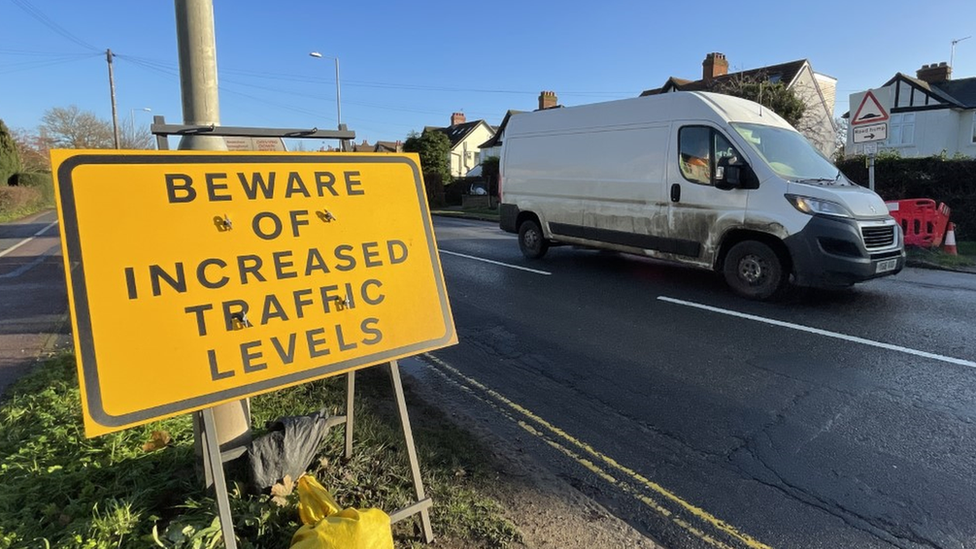
The plans aim to improve public transport while cutting congestion and pollution
Plans for a congestion charge in a city look set to continue despite the majority of people who took part in a consultation opposing the idea.
The plan would see public transport improvements paid for by a £5 minimum daily charge for driving into or within Cambridge.
The Greater Cambridge Partnership (GCP) Joint Assembly was told there was support for better bus services.
A meeting heard modifications could help win support for the overall plan.
The assembly includes local councillors, business and university representatives.
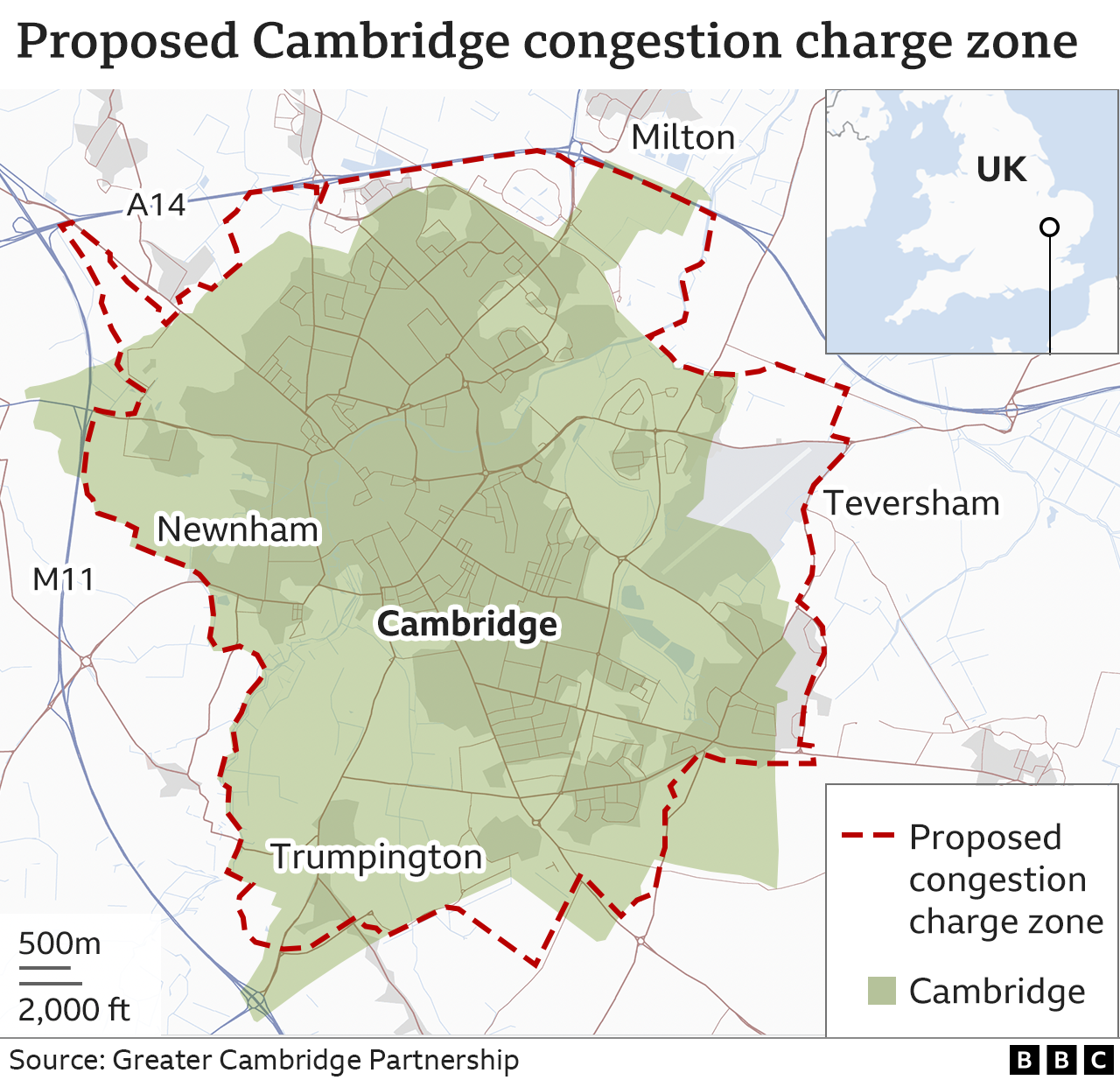
Their advice will now be passed to senior members of the GCP board.
More than 24,000 people took part in the consultation into transport and congestion in the Cambridge area.
It proposed a massive increase in bus services funded by a £5 charge on cars, £10 for vans and £50 for lorries entering the city between 07:00 and 19:00.
Some 58% were opposed to the charge, with 34% supporting it.
'Explore issues further'
But 70% of people said they wanted better bus services and a majority of under 35s were in favour of congestion charging.
Assembly chairman Tim Bick said: "People really liked the benefits that can be offered in terms of public transport but that wasn't the case when it came to road charging, which is the stick that comes with the carrot.
"Half the people who didn't like that proposal had particular issues and what we want to do is explore those issues further to see if they can be addressed through changes to the scheme."Most of the assembly felt that it was important to proceed with the scheme.
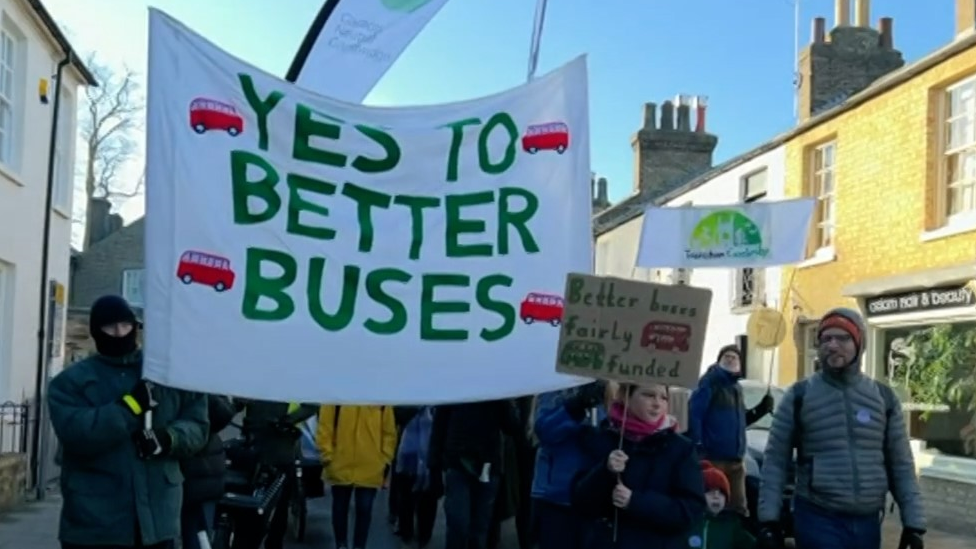
Rallies have been held in support of - and against - the proposals
Helen Valentine, a university representative, said "The status quo is not an option. We need to take some radical steps to improve this city."
The only opposition came from Conservative councillor Heather Williams, who was not present but said in a letter to the assembly: "To go down this road with only a 34% level of support [for charging] would be a grave error of judgement."
There were a lot of other issues which the assembly felt needed to be discussed further, including whether staff and patients visiting the city's hospitals should be exempt from paying.
Marks & Spencer fears
Other subjects needing more consideration were around the hours of operation and the potential impact on businesses.
The meeting was told Marks & Spencer was worried about losing £140,000 a year because of the charge, while a submission from Neil Mackay, who owns a hardware store in the city, said he had between six and 10 lorry deliveries a day.
There was also a concern that if there were too many exemptions there would not be as much money to fund improvements to bus services.
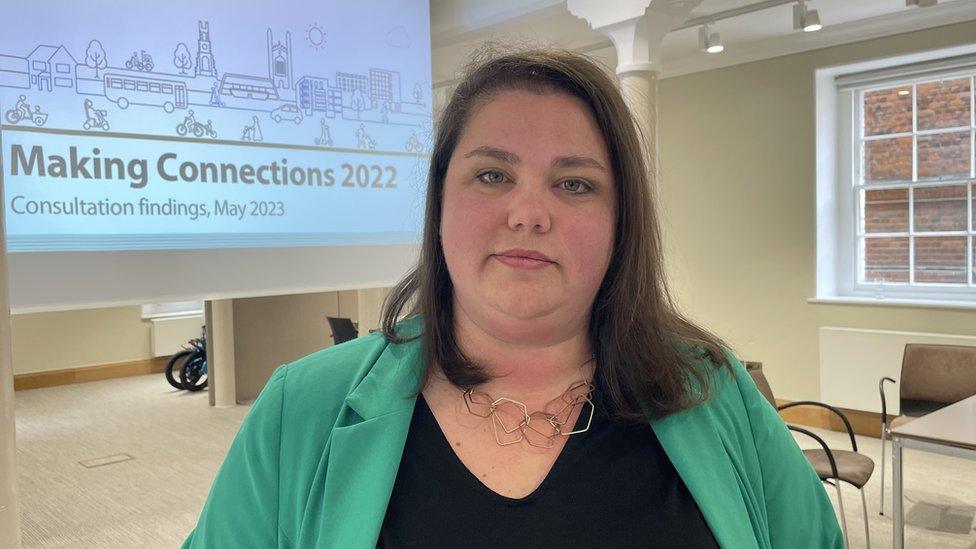
Lynne Miles said politicians will now have to consider how the scheme might be altered
Lynne Miles, who drew up the proposals for the GCP, said: "There are various options for going forward.
"There will be difficulties in balancing what we've heard but we can draw up those plans and it'll be up to the decision makers to decide what's viable."
Any changes are still a long way off but the intention is to keep trying to find ways of tackling congestion and improving public transport in Cambridge.

Find BBC News: East of England on Facebook, external, Instagram, external and Twitter, external. If you have a story suggestion email eastofenglandnews@bbc.co.uk, external
Related topics
- Published26 May 2023
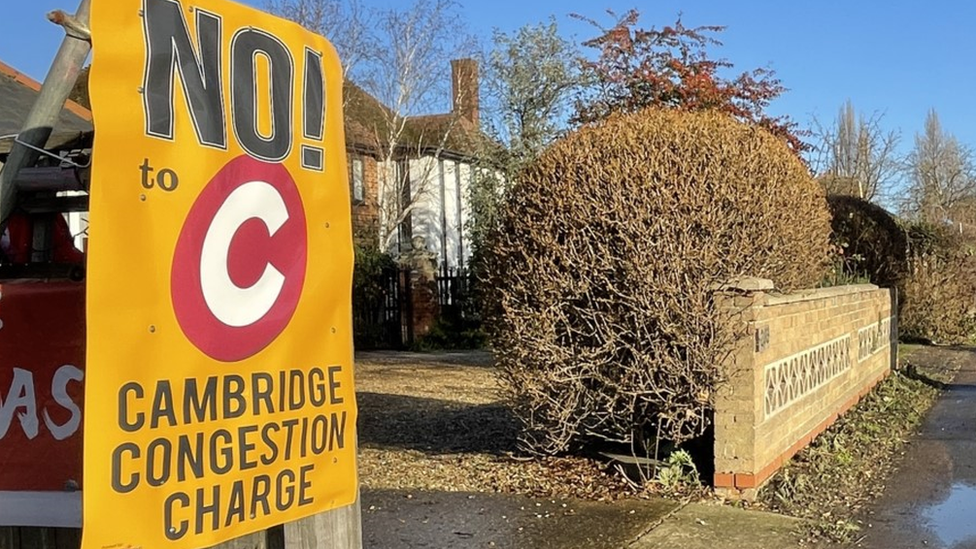
- Published21 March 2023
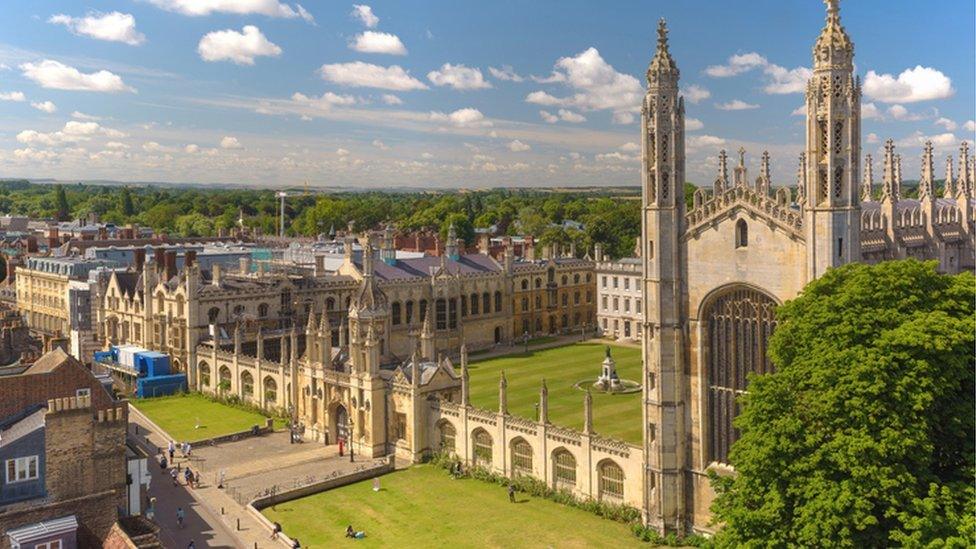
- Published13 February 2023
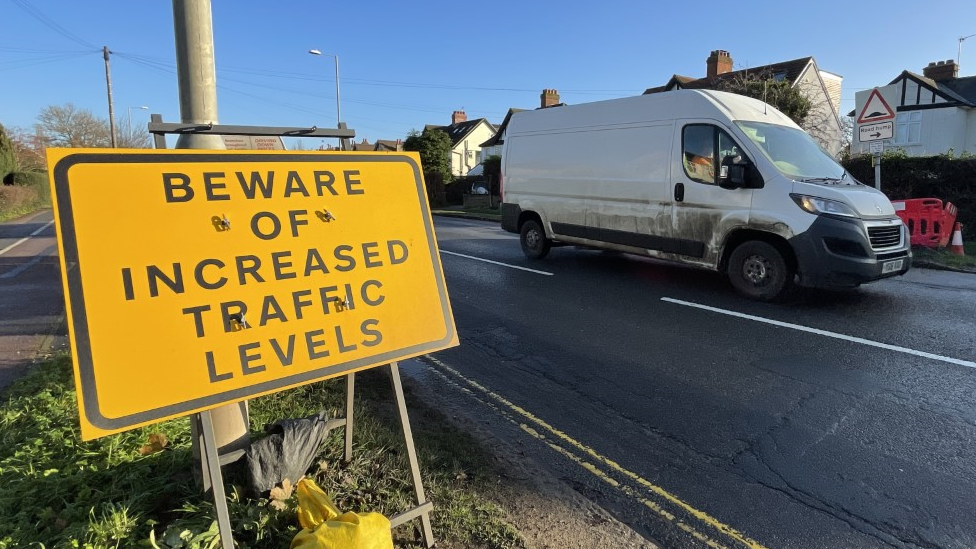
- Published5 February 2023
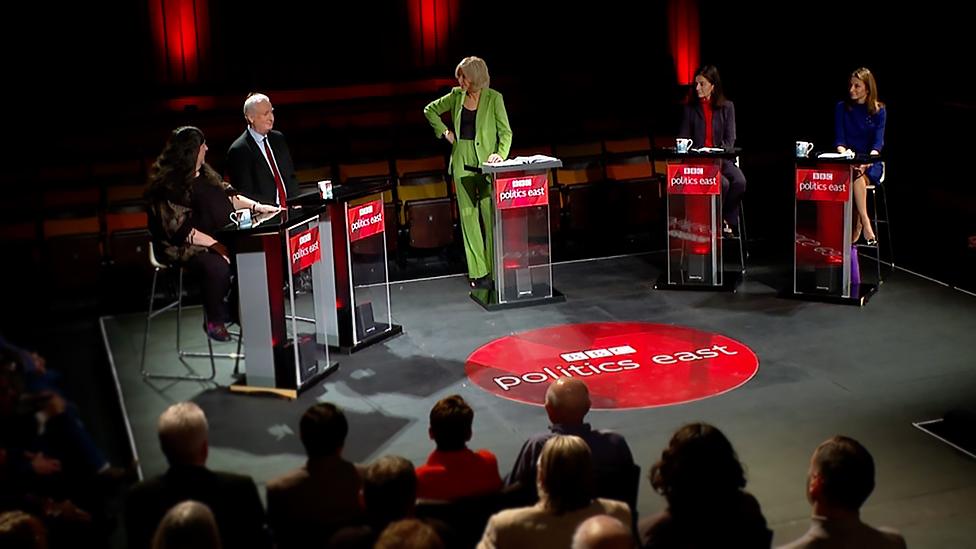
- Published3 February 2023
